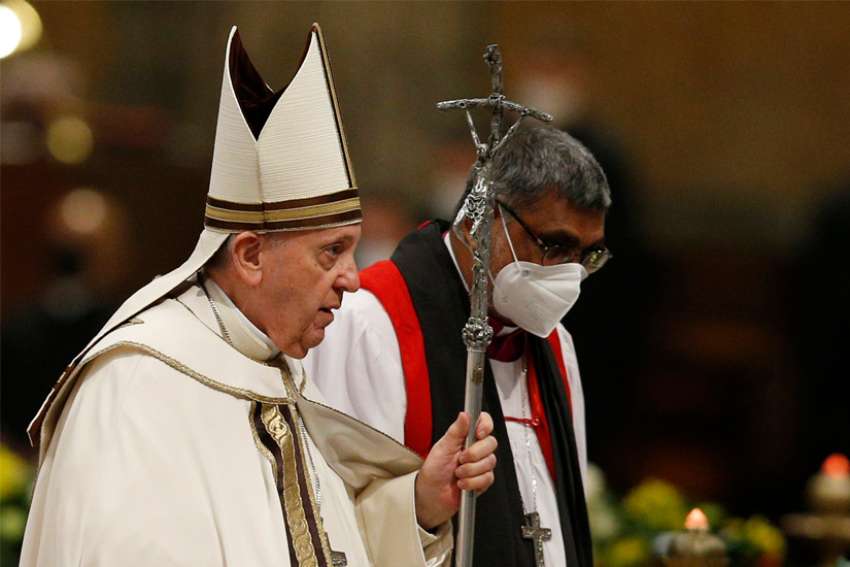Williams began by noting that for Anglicans, universal papal jurisdiction is not part of the divine constitution of the Church. He allowed, however, that papal primacy can be “a providential aid to the coherence and good order of the Body of Christ as it has actually evolved through history.” It might be possible for Anglicans to be in communion with Catholics who hold that papal primacy is divinely ordained.
According to Williams, Sts. Cyprian and Augustine, early Church fathers, both stated that it was acceptable for Christians to differ on some subjects if they agreed on a fundamental set of beliefs. Such a “fundamental set” would be say, the Nicene Creed in which we profess basic beliefs on the nature of Jesus and the nature of God. However, diverse approaches to other Catholic beliefs such as purgatory, transubstantiation, papal infallibility and Mary’s immaculate conception could be permitted.
Doctrines essential to Christian identity would be fundamental. One could not, for example, believe that Jesus became God at His baptism in the Jordan and still be Christian. The entire fabric of the Christian notion of salvation depends on Christ being the fully divine Son of God through all eternity. Strip that away, and Christianity is incoherent. An office in the Church, such as the papacy, is necessary to maintain the integrity of our fundamental beliefs.
However, other beliefs, in Williams’ view, are not essential. They may be implied by the Creed, but one can be a good Christian without believing all that the Catholic Church holds as true about the Virgin Mary.
Williams’ “solution” to the issue of papal primacy sounds attractive, but there are problems.
First, Pope John Paul’s 1995 encyclical That All May Be One (Ut Unum Sint) offers a longer list of areas of papal oversight than Williams considers. Papal primacy includes “vigilance over the handing down of the word, the celebration of the liturgy and the sacraments, the Church’s mission, discipline and the Christian life” (94). It is also the task of the pope to protect the common good of the Church from those who would use the Church for their personal interests. When necessary, he can speak in the name of all pastors in communion with him. As well, he can declare that a certain doctrine belongs to the deposit of faith.
While Pope John Paul opened the door for discussion of the exercise of papal primacy, he also created a long list of matters not open for discussion.
Second, it is not easy to reconcile the Catholic belief that the papacy is divinely instituted with the Anglican view that it is an office which might be a good idea for maintaining orthodoxy on central tenets of Christian belief. If the papacy is a pragmatic necessity today, it may not be so 100 years from now.
What then? Does the Church again split between those who believe the papacy was divinely instituted and those who thought it was a good idea a few years ago but isn’t now? We’ve been through that. It’s one of the sources of division Christians today need to resolve.
Here is perhaps the reason Church leaders and theologians have been slow to respond to Pope John Paul’s call for dialogue on how the papacy can be exercised so it becomes a source of unity rather than division. The former pope’s description of what is necessary to the papacy leaves little room for Orthodox, Anglican and Protestant churches to maintain their traditions. These churches would be welcomed back into the Catholic Church but would lose much of their identity in reunion.
This is why we need to pray for unity. Church reunion, above all, requires the action of the Holy Spirit. As Pope John Paul wrote, the achievement of reunion is “an immense task.” It is beyond human capacity. So while dialogue among Church leaders and their theologians is necessary, such dialogue needs to be divinely inspired. We cannot restore the united Church on our own.
(Argan writes from Edmonton.)


